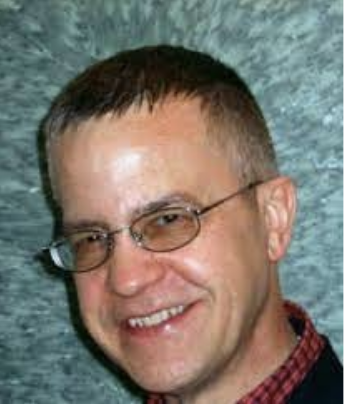Sing In the Season!
Digital Program
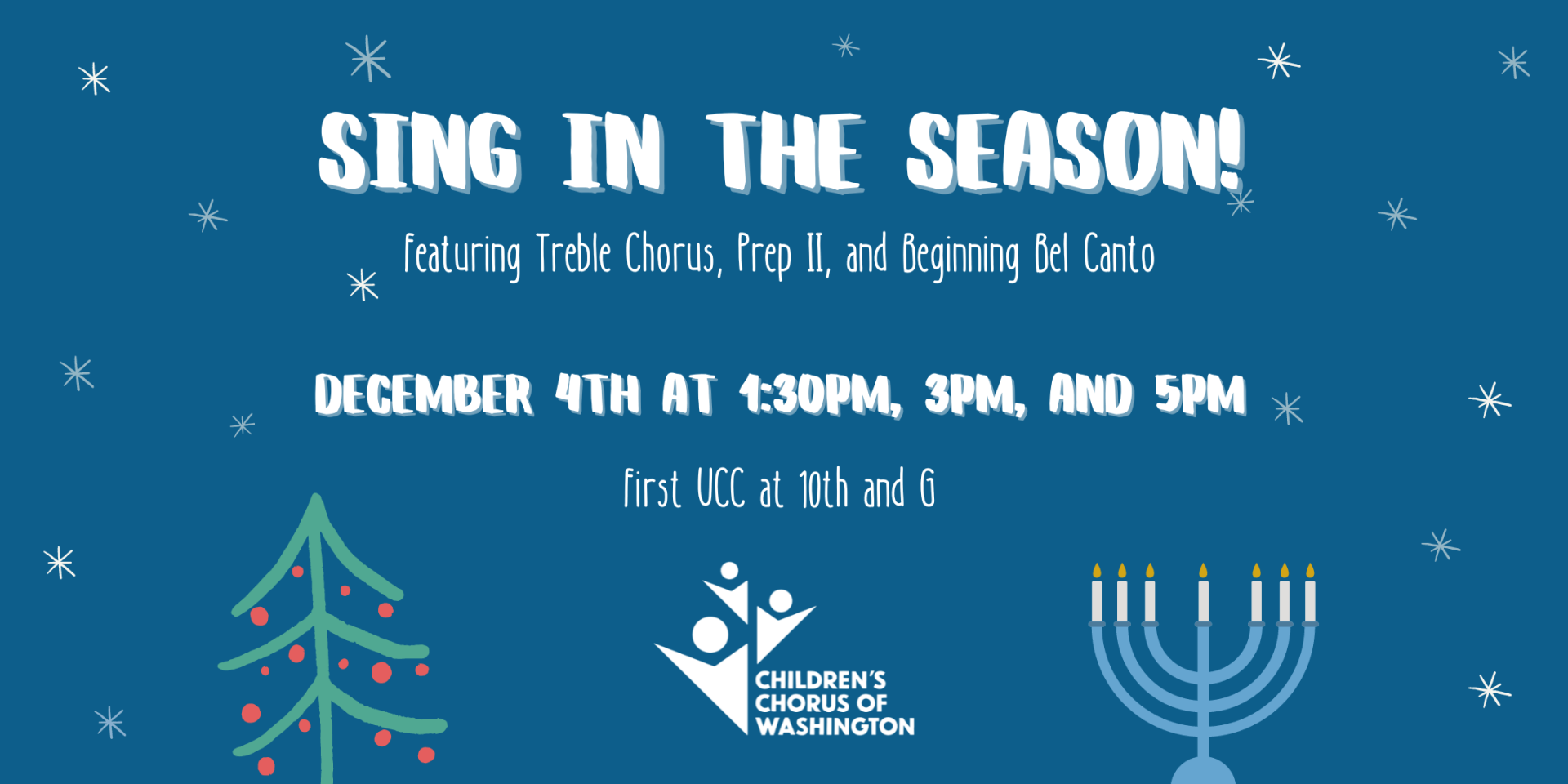
Welcome to our lower division spotlight performances! This performance is being recorded for archival purposes. You are welcome to take photos with no flash throughout the performance. You may use flash after the final bow. If you post on social media about the event, please tag us! We're @childrenschorus on Instagram and @ChildrensChorusofWashington on Facebook.
Click to jump to the corresponding section:
Treble Chorus Texts, Translations, and Program Notes
El Burrito Sabanero
Con mi burrito sabanero voy camino de Belén.
Si me ven, si me ven, voy camino de Belén.
Con mi cuatrico voy cantando mi burrito va trotando.
Con mi cuatrico voy cantando mi burrito va trotrico.
Si me ven, si me ven, voy camino de Belén.
Tuqui Tuqui Tuqui Tuqui.
Apúrate mi burrito que ya vamos a llegar.
Tuqui Tuqui Tuqui Tuqui.
Apúrate mi burrito vamos a ver a Jesus.
Con mi burrito sabanero voy camino de Belén.
Si me ven, si me ven, voy camino de Belén.
Tuqui Tuqui Tuqui Tuquita, oh, Tuqui Tuqui Tuqui Tuquitu.
Apúrate mi burrito!
Con mi burrito sabanero voy camino de Belén.
Si me ven, si me ven, voy camino de Belén.
With my savannah donkey, I am on my way to Bethlehem. If they see me, I am on my way. With my little guitar, I go singing. My little donkey goes trotting. (Tuqui = the sound of the donkey clip clopping along). Hurry up, little donkey. We'll get there already. We are going to see Jesus.
Although El Burrito Sabanero (The Little Donkey from the Savannah) or El Burrito de Belén (The Little Donkey from Bethlehem) is a Christmas song from Venezuela, it is popular in all of Latin America. It was written by Hugo Blanco for the 1972 Christmas season. It has been recorded numerous times by popular artists including Simón Diaz.
When You Believe
Have you seen the winter?
Have you seen the snow wrestle with the trees when the wind starts to blow?
While you stand there waiting still anticipating,
miracles come true if you just close your eyes,
miracles come true when you believe.
I have seen winter.
I have seen snow dance on the roof while a child sleeps below.
While you lie waiting magic appears.
Miracles come true if you just close your eyes.
Miracles come true when you believe.
Puerto Rican composer Carlos Lopes’ partner song, When You Believe, is an ode to winter that is sure to warm your heart. “Have you seen the snow wrestle with the trees when the wind starts to blow?” The song beautifully illustrates the beauty of winter and the faith in a young heart.
Al Shlosha D'Varim
Al shlosha d’varim haolam kayam, Al haemet v’al hadin v’al hashalom.
The world is sustained by three things, by truth, by justice, and by peace.
Due in large part to the songs universal theme, Al Shlosha D’varim has been a part of the CCW standard repertoire since its first season. Naplan’s lyrical setting of an essential maxim from Jewish morality laws is translated to mean: “The world is sustained by three things: by truth, by justice, and by peace.”
Over the River and Through the Wood
Over the river and through the wood to grandmother's house we go.
The hose knows the way to carry the sleigh through the white and drifted snow.
Over the river and through the wood, oh, how the wind does blow!
It stings the toes and bites the nose as over the ground we go.
Over the river and through the wood with a clear blue winter sky.
The dogs do bark and the children hard as we go jingling by.
Over the river and through the wood to have a first-rate play.
Hear the bells ring. Ting-a-ling-ding! Hurray for Christmas Day!
Over the river and through the wood when grandmother sees us come,
she will say, "Oh, dear, the children are here, bring a pie for ev'ryone!"
Over the river and through the wood, now grandmother's cap I spy.
Hyrray for the fun! Is the pudding done? Hurray for the pumpkin pie!
Over the river, and through the wood, it's Christmas Day!
Brimming with rhythmic energy, Gilpin’s arrangement is a fresh new take on a holiday favorite. Over the River and Through the Wood was originally published in 1844 as a poem written by Lydia Maria Child who was a novelist, journalist, teacher, and poet who wrote extensively about the need to eliminate slavery. The poem here was published in Child’s book of poems Flowers for Children, Volume 2 and was originally titled “The New-England Boy’s Song about Thanksgiving Day.” In time, Child’s poem was set to music by an unknown composer. Traditionally the song is sung as a Thanksgiving song in which the original lyrics say, “Hurrah for Thanksgiving Day!” rather than “Hurrah for Christmas Day!” The original poem also contained 12 verses.
Prep II Texts, Translations, and Program Notes
Hine Ma Tov - Trad. Hebrew
Hine ma tov uma nayim shevet achim gam yachad.
The lyrics are from the first verse of Psalm 133, which translates from Hebrew to English as "How good and how pleasant it is that brothers (people) dwell together." It speaks of the importance of community.
Path to the Moon
I long to sail the path to the moon
On a deep blue night, when the wind is cool:
A glist’ning path that runs out to sea.
Silver the sails to carry me,
To carry, carry, carry me over the sea.
So will I sail, on a starry night
On the path to the Moon, a seabird’s flight:
Skimming the waves, where the fishes play,
Traveling on, for many a day;
Silver the sails to carry me,
To carry, carry, carry me over the sea.
Eric Harding Thiman (pronounced Tea-man) September 12, 1900 – February 13, 1975.
Eric Thiman was an English composer, organist, and conductor. He was born in Ashford, Kent. In his early years he was mainly self-taught and in 1928 earned a Doctorate of Music. In 1930 he started teaching at the Royal Academy of Music. Later in his life he became Dean of Music at the University of London. Dr. Thiman contributed over 1300 works to the choral literature, especially for treble voices.
He has set this beautiful, imaginative poem
Path to the Moon
by Madeline C. Thomas for children’s voices. It was published by Boosey & Hawkes in 1956.
Here in My House
Here in my house, there are candles burning bright,
one for every night of the holiday.
We gather with friends, sharing gifts and happy times,
Happy Hanukkah
And in my neighbor’s house the lights are shining, too,
Red and green and blue, ’round the door.
The sound of jingle bells and laughter everywhere,
Merry Christmas and many more.
Season of light, season of cheer,
season of peace, may it last throughout the year.
Aline Shader (1936-2002) was an accomplished composer of children’s songs. Here in My House was one of her most popular compositions, written in 1970 and finally published in 1982 by Coronet Press. It is no longer available in print. Ms. Shader was a theatre and music teacher and lived and worked in Newton, MA. Later in her career, she became artist-in-residence for Boston Public Schools.
Here in My House is a winter holiday partner song about Christmas and Hanukkah which continues to be programmed year after year in Holiday concerts.
BBC Texts, Translations, and Program Notes
From Cécile Audette, BBC director - Thank you all for your support in making this concert a reality. Our choristers are dedicated, hard-working children with full lives at school, at home, in sports, in their faith practices, and more. All activities started at once after almost two years of silence, so we are grateful that they come each week, eager to learn, seeking to be their best, and delighting in making beautiful music. The learning curve has been great for me as well - first because we have all been online for almost two years, and further because it is my first year as director, and I chose music that would have been challenging under any circumstances. BBC choristers have risen to the challenge and grown in their skill levels as we have learned to work together as a team. Being back in person has added a connection so greatly needed, and the ability to make music together brings palpable joy. Making a recording in a room is not nearly the same experience as sharing the same space, hearing and tuning with our neighbor, blending our vowels, maintaining our parts, and expressing our emotions together. I am grateful to say that there is truly nothing that can take the place of a live performance. We give you our best today, and we are so excited that you are with us today to share our joy!
1. Come in! Come In!
Poem by the composer
Come In! Come in! Come in!
Ye carolers trudging around in the snow,
Come In! Come in!
Sit by the fire and (drink up some cider and...)
Warm up your fingers and toes.
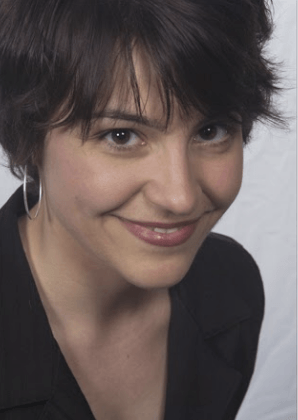
Abbie Betinis (born January 21, 1980 - Stevens Point, Wisconsin) has composed music for a variety of musical ensembles and is best known for her choral music and other vocal works.
Born into a musical family, Abbie Burt Bettinis is the granddaughter of the famous Alfred Burt who is most known for his yearly carols. Abbie attended St. Olaf College on a piano scholarship and graduated with a degree in music composition and linguistics. Earning an M.A. in music composition from the University of Minnesota. The tradition of carol-writing began with her great grandfather, Bates Burt, and continued through his son Alfred. Come in! Come in!, honors the memory of Abbie’s grandfather, Rev. John Burt, who joyfully greeted family and guests every holiday. She is a three-time cancer survivor, and this has been an important influence in her work. Her style is simple, straightforward, positive, and ever-inclusive. (abbiebetinis.com)
2. Stopping by Woods on a Snowy Evening
Poem by Robert Frost
Whose woods these are, I think I know;
His house is in the village though;
He will not see me stopping here
To watch his woods fill up with snow.
My little horse must think it queer
To stop without a farmhouse near.
Between the woods and frozen lake,
The darkest evening of the year.
He gives his harness bells a shake to see if there is some mistake
The only other sound’s the sweep of easy wind and downy flake.
The woods are lovely dark and deep,
But I have promises to keep,
And miles to go before I sleep,
And miles to go before I sleep.
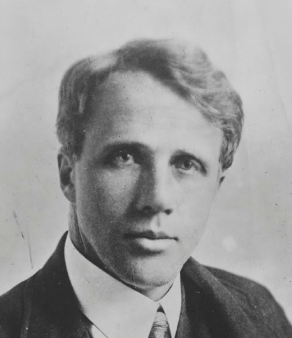
Robert Frost (1874 - 1963) became interested in poetry in high school. Although he never obtained a college degree, he is one of the most well-known poets of his time. He moved his family to England in 1912, and there he met other poets who helped him to publish his work. In the 3 years he lived in England, he became a well-known writer. He moved back to the United States in 1915 and lived in New Hampshire for the remainder of his life. One of his most famous poems is Stopping by Woods on a Snowy Evening.
Victor C. Johnson
was born in Dallas, Texas. He is an award-winning composer, arranger, music educator, conductor - and an accomplished pianist and organist. His first choral composition was published while he was in high school. Victor currently serves as Minister of Worship and Arts at Shiloh Baptist Church in Plano, Texas, a position he has held since 2007. He published
Stopping by Woods on a Snowy Evening
in 2020.
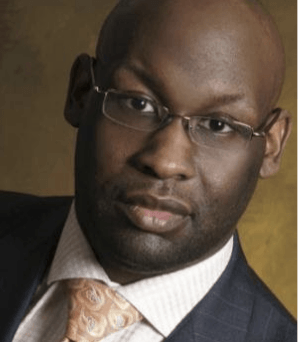
3. Patapan
Text by Bernard de La Monnoye
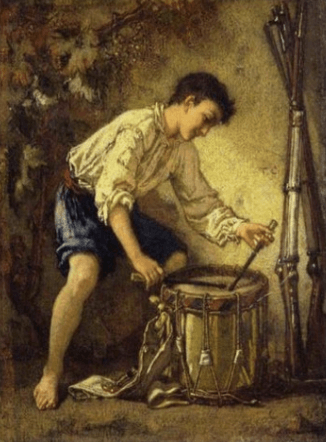
Willie take your little drum, Robin, take your flute, come!
To the sound of these instruments,
Tu-re-lu-re-lu, pat-a-pat-a-pan,
To the sound of these instruments, I will joyfully sing noel!
It was the way of yonder times, To praise the King of kings
To the sound of these instruments:
Tu-re-lu-re-lu, pat-a-pat-a-pan,
To the sound of these instruments, We must do the same.
Man and God agree About the flute and the little drum…
To the sound of these instruments,
Tu-re-lu-re-lu, pat-a-pat-a-pan
To the sound of these instruments, Sing! Dance! Jump around!
Bernard de La Monnoye (1641-1728) was a French lawyer, poet, and critic. He was initially trained as a lawyer but was much more passionate about composing music. His most famous work was Patapan, from the carols called Noei borguignon (Borguignon - 1720). Its original title is Guillô, Pran Ton Tamborin ("Willie, Bring Your Little Drum"). The song was later adapted into French and English.
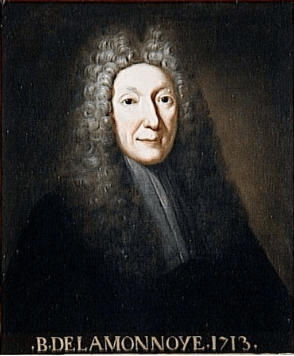
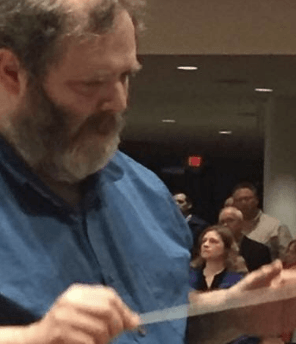
Roger Stratton lives in Minnesota, where he has served as a church musician since 1996. He graduated from Oberlin College with a degree in East Asian Studies. His master’s degree from New England Conservatory was in Choral Conducting, with additional studies in composition, piano, and theology. He is known for taking traditional tunes and re-arranging them in a new way with innovative jazz harmonies and syncopated rhythms. He is married, with two sons and many pets.
4.
Care Selve - An arioso from the opera,
Atlanta
Libretto by Valeriani Belisario
Beloved forests, blessed shadows:
I come in search of my love (heart)
The opera, Atlanta, was commissioned in 1736 by Frederick, Prince of Wales for his marriage to Princess Augusta. It is a Pastorale is based upon the book, La Caccia in Etolia by Belisario Valeriani. It is a classic love story and commentary on social stations. King Meleagro of Aetolia is in love with Princess Atlanta. The opera opens with the arioso, Care Selve. This is sung by King Meleagro, disguised as the shepherd Tirsi, as he declares his love for “Amarilli” who is Princess Atlanta in disguise. Both are saddened that their true stations would not allow for them to declare their love to one another. In the third act, they reveal their true identities to one another and receive a blessing from Jove to marry.
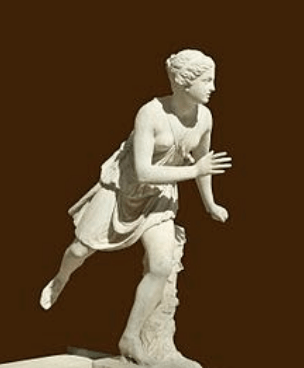
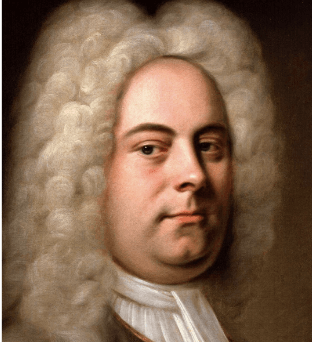
George Friedrich Handel (1695-1759) was one of the most renowned and prolific composers of the Baroque period. Handel’s first teacher was his father, a barber-surgeon and violinist. Handel was educated as a lawyer, but his first love was music. He played the organ, harpsichord, and violin. In 1705, he wrote his first opera, and the next year, he moved to Italy where he wrote several successful operas. He moved to London in 1711, and was eventually appointed as court composer to King George, the First.
Care Selve is performed by Abraham Li Latner, who recently won first place in his age group at the American Asian Music Society Vocal Competition.
5.
Cantamos! (Let’s Sing!)
Text by the composer
Mi vida, mi vida, mi vida cumplida - My life, my life, my life complete
Una Cancion - a song
I want to sing with the voice of a thousand generations
I want to sing with the strength of a million mighty nations
I want to sing with the soul of a powerful stream
The whisper of a dream you gave to me!
Refrain:
Cantamos - Let a voice resound
Cantamos - With a mighty sound
Cantamos - Swelling from the ground
We sing, we sing, we sing, we sing
Cantamos - Like a rising storm
Cantamos - Let a song be born
Cantamos -Till the break of morn
We sing, we sing, we sing, we sing
Mi vida/una cancion...
I want to sing for the dreamers who reach for something higher
I want to sing for the artists who light our souls with fire
I want to sing for the heroes who fight for our life
For the truth with no disguise, lift up your eyes!
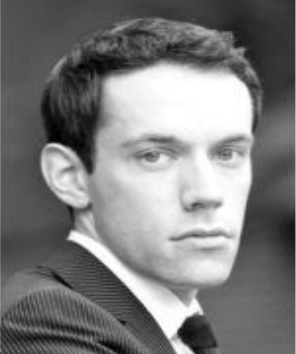
Jacques (James) Desjardins is an internationally known composer, educator, and conductor. Desjardins studied music composition with Bruce Mather at McGill University where he earned a Bachelor of Music and a Master of Music. He obtained a Doctorate of Musical Arts from the University of Michigan. He was on the music faculty of the Université de Sherbrooke from 1993 to 2002 and is currently a member of the music faculty at the San Francisco Conservatory of Music. In his free time, Mr. DesJardins enjoys exploring San Francisco and the surrounding areas with his wife, Julienne, and their son, Luke. (San Francisco Conservatory of Music - Faculty biographies)
6.
Al Shlosha D’Varim
Text from Pirkei Avot - (The Morality Laws of the Fathers)
Al shlosha d’varim haolam kayam, Al haemet v’al hadin v’al hashalom.
The world is sustained by three things: by truth, by justice, and by peace.
Al Shlosha D’Varim was written by Allan Naplan, a close friend of Children’s Chorus of Washington’s founder, Joan Gregoryk. It is a tradition that all groups from CCW sing this song each year, and alumni are invited to sing this song with us at our winter concerts. If there are any alumnae or members of other CCW groups here tonight, we welcome you to join us! The message reflects our values and beliefs, and we are united in song from the youngest singers to the oldest. We hope this song will remain in the hearts of our choristers throughout their lives.
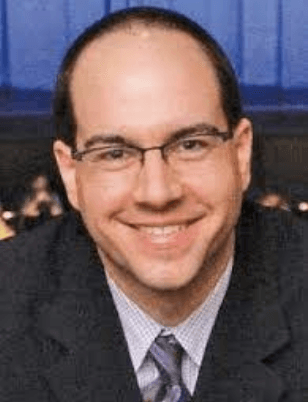
Allan Naplan grew up in a family of musicians, immersed in his faith. His music reflects his love for classical music and his dedication to his Judaic heritage. He has enjoyed a career as an opera singer, a cantor, a teacher, a conductor, and a composer of hundreds of songs. One translation of this piece is “The world is sustained by three things: Torah, prayer, and lovingkindness, which can be a universal theme.” Another translation is even more universal and applicable to all - regardless of their faith background and practice: “The world is sustained by three things, by truth, by justice, and by peace.” We embrace this translation and its universality as we strive for inclusivity and greater depth of community.
7. On with the Snow!
Sleigh Ride
(Mitchell Parish) Leroy Anderson
Winter Wonderland
(Dick Smith) Felix Bernard
Let it Snow! Let it Snow! Let it Snow!
(Sammy Cahn) Jule Styne
SINGALONG - Please join us!
Sleigh Ride
Just hear those sleigh bells jingle-ing, ring, ting, tingle-ing too
Come on, it’s lovely weather for a sleigh ride together with you
Outside the snow is falling and friends are calling “Yoo-hoo.”
Come on, it’s lovely weather for a sleigh ride together with you
Giddy-yap, giddy-yap, giddy-yap, let’s go; let’s look at the show.
We’re riding in a wonderland of snow.
Giddy-yap, giddy-yap, giddy-yap, it’s grand, Just holding your hand;
We’re gliding along with the song of a winter wonderland.
Walkin’ in the Winter Wonderland
Sleighbells ring, are you list’nin’? In the lane, snow is glist’nin’.
A beautiful sight, we’re happy tonight
Walkin’ in the winter wonderland.
In the meadow, we can build a snowman,
then pretend that he is Parson Brown.
He’ll say “Are you married?” We’ll say “No, man!
But you can do the job while you’re in town!”
Let it Snow! Let it Snow! Let it Snow!
Oh, the weather outside is frightful, but the fire is so delightful
And since we’ve no place to go, let it snow! Let it snow! Let it snow!
When we finally kiss goodnight, how I’ll hate going out in the storm!
But if you’ll really hold me tight, all the way home I’ll be warm,
The fire is slowly dying, and my dear, we’re still goodbye-ing.
But as long as you love me so, let it snow! Let it snow! Let it snow!
Sleigh Ride
Our cheeks are nice and rosy and comfy cozy are we.
We’re snuggled up together like two birds of a feather would be.
Let’s take the road before us and sing a chorus or two.
Come on, it’s lovely weather for a sleigh ride together with you,
lovely weather for a sleigh ride together with you!
Biographies and Notes for On with the Snow!
In formal terms, a medley is most commonly a set of three songs that combine in a through-composed fashion, beginning with the first theme or melody and never returning to it. This medley has an over-arching ABA form, which begins and ends with Sleigh Ride. In preparing this program, I wanted to acknowledge the composer/lyricist teams that most of us take for granted.
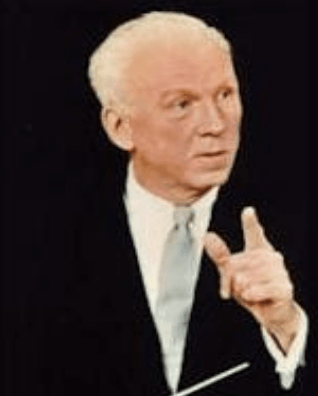
Leroy Anderson (1908 - 1975) received his first piano lessons from his mom when he was 5 and wrote his first string quartet when he was 12. He attended Harvard University and studied composition, organ, double bass, and piano. While at Harvard graduate school earning his Ph.D. in Scandinavian languages, he became the Director of the Harvard University Band. Arthur Fiedler mentored him and commissioned him to write compositions for Boston Pops during that time.
Leroy became a private in the US Army during WWII, after which he worked in the Pentagon as Chief of Scandinavian Military Intelligence. He was a talented linguist, conductor, and composer.
Sleigh Ride is likely his most famous piece.
Mitchell Parrish (1900 - 1993), the lyricist for Sleigh Ride, lived in New York City most of his life. A graduate of Columbia University and NYU, he trained to be a lawyer but left law to pursue songwriting. His career as a songwriter included Vaudeville, Broadway, and the famous Cotton Club and collaborations with icons such as Hoagy Carmichael, Duke Ellington, Glen Miller, and Leroy Anderson.
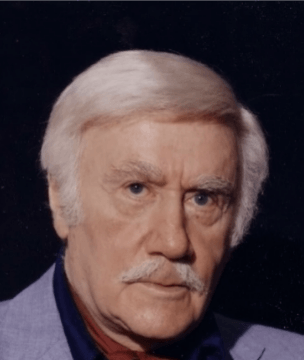
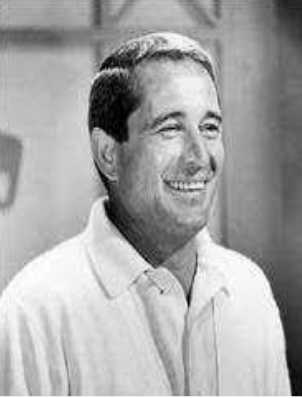
Felix Bernard (1897-1944) was born to a family of musicians. In his youth, Felix learned to play the piano and performed in Vaudeville shows as a tap dancer. He wrote many songs and film scores. One of his most famous pieces, Winter Wonderland, was written from the lyrics of a dear friend, Richard Smith (1901 - 1935) who was hospitalized and isolated with tuberculosis. From his hospital window, Richard could look out and see the freshly fallen snow, which inspired the poem, Winter Wonderland. The song has lived on for over 80 years.
Jule Styne (1905 - 1994) was born in London, England. He moved to Chicago and began piano lessons when he was 8. By the time he was 10, Jules performed as a soloist with the Chicago, St. Louis, and Detroit Symphonies As a young adult he coached Shirley Temple and many other famous singers. He began collaborating with Sammy Cahn in the 1940s and wrote several hit songs and musical Scores - including Let it Snow, Let it Snow, Let it Snow!
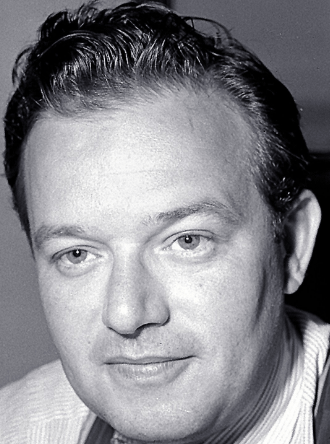
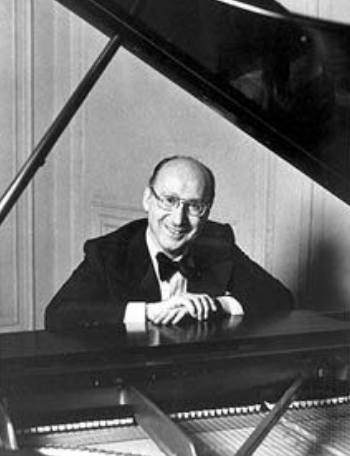
Sammy Cahn (1913 - 1993) was born Samuel Cohen in New York City. A first-generation Polish-American, he learned to play the violin in his youth. His first gigs were playing for Bar Mitzvahs and in pit bands for shows. While he was a composer, his love was writing lyrics: “Lyric writing has always been a thrilling adventure for me, and something I've done with the kind of ease that only comes with joy!” He collaborated with Jules Styne for nine years, and during that time, they wrote several hit songs together. One of the most celebrated still is Let it Snow, Let it Snow, Let it Snow!
Douglas E. Wagner - arranger of On With the Snow! is an internationally recognized composer and arranger. He was born in Chicago and has lived in Indiana most of his life. He was a high school music educator and church musician for many years before he became a full-time composer. Doug has published many works for choir, solo voice, and instrumental ensembles which have been performed throughout the United States and all over the world. Doug lives in Indianapolis with his wife, Sandy, an artist and music engraver.
